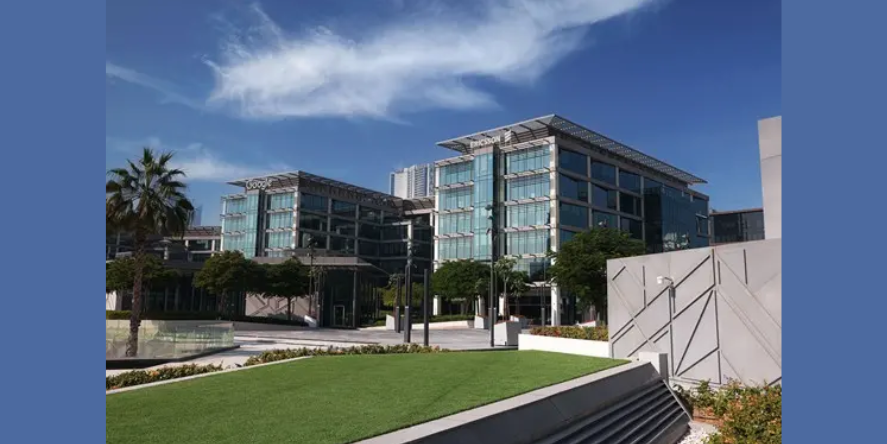As per the latest report compiled from the International Monetary Fund (IMF), all core economies of the GCC have hugely been hit via the ‘Double Impact’ sustained due to COVID-19 Virus as well as lowering in the Oil Rates.
Like the remaining part of global part, the Gulf states have taken place the policies for curbing the effects of COVID-19 Virus. Majority of Gulf nations, unlike many other emerging market immediate peers, have got beneath them a handy fiscal shield for aiding in their economies via the Business-friendly policies that appeal the interest of all global investors.
However, within the unprecedented COVID-19 timeframe, huge reserves were not adequate to curb the slump down and as the outcome International Monetary Fund (IMF) estimate the Gulf States’ blended economic outcome to further aggravate down to 7.1 percent within the closure of this year.
The positive outcome is that the majority of GCC nations are following the blueprints of economic diversification, with their chunk of investments within the tourism, Science, Agri-Foods, Financial Services and as well as the technology.
They have understood that the after-effects of failure to diversify will be very critical. We can view from the present situation within Oman, that has become late towards the diversification initiative, that the disclosure for oil rates is no longer appropriate. It has not just reflected within the nation’s huge budget deficit of 17 percent; however, it has also reflected within the credit slump it has suffered- two downgrades from Moody’s Investors Service, one from Fitch Ratings and one from S&P Global Ratings.
There is however no swift fixing for the nations that have huge deficits as the global markets remains hugely precarious till the Pandemic is restrained or till a vaccine is found. However, the positive outcome is that there is absolutely no second thought that there are huge prospects as well as for many other nations and firms for re-inventing their merchandise as well as services and also for creation of better sustainable as well as responsive frameworks for withstanding the outer shocks.
The IMF further announced that it trusts that GCC as on the whole will get rebounded by 2.1 percent within the coming year 2021, maintained via a 3 percent upsurge for Non-Oil Private Sector expansion. As non-oil expansion is exactly that the GCC nations require- in fact as for the native nations, they must straight away get diversified away from their heavy reliance upon Oil, in case they have to nurture any sustainable economic expansion at all.
The hurdles like that in form of domestic supply chains, healthcare, online education, digitalized services, FinTech, Online E-commerce as well as the renewable power, that were core sectors gaining the threshold before the catastrophe, will now be viewed with better interest once going forward. It is hugely vital for the GCC nations to transform in their attention for creation of better eco system within these fields.
There is hugely, greater interests for procurement of native produced merchandize as well as services- within few ways that it could lead to that COVID-19 has no doubt advanced a recovery within the Patriotism that was already a showcase of a global economy dominated via Trump’s trade war, tariffs as well as ‘America Initial’ policies.
The aid for the native SMEs as well as manufacturers is at present a matter of economic pressure if not patriotism. The time is better to create domestic infrastructure as well as capacity within the diversified fields like Food, Agriculture, Education, Medical Equipment, Hardware, E-commerce, as well as Manufacturing, Pharmaceuticals, etc that native entrepreneurs can perform well at home- as well as native value chains that can become develop via native innovation.
Within the UAE, the government is viewing renewable power as well as green economy as the twice core driving forces that will power the nation’s sustainable recovery. Within 2050, the nations core objective to source 50 percent of its power from Solar as well as Nuclear power.
Enhancing value chains also means utilizing non-oil energy solutions that are commercially sustainable. In Oman, for instance, which is heavily oil reliant, there are, arguably belated, moves towards clean sources of energy. Solar and wind plants are already in operation in parts of the nation and the national energy company OQ is investing in alternatives like ‘green molecules’ – hydrogen and biofuels.
Oman’s new five-year plan, which will start later year, as well as Saudi Arabia’s Vision 2030, UAE’s Vision 2030, and Kuwait’s Vision 2035 designs are all variations on a theme of broadening and building capabilities.
In July, the Emirates Water and Electricity Co. bestowed a conglomerate featuring France’s EDF Renewables and China’s JinkoPower a 2GW power project – the nation’s major solar project. Meanwhile, Sharjah is planning to turn a 47-hectare landfill into a solar energy project generating 42MW.
In Saudi Arabia, US-based Air Products and its Saudi associates agreed to invest $5bn to construct a green hydrogen-based ammonia construction facility operated by renewable energy. A future built upon non-oil energies and non-energy industries can only truly thrive if nations have an empowering infrastructure, which is why it is good to see GCC states continue constant in their effort to build.
Earlier this year, Etihad Rail conferred two contracts as part of a Dhs4.4bn 605-kilometre line from Ghuweifat to the Port of Fujairah on the eastern coast. In July, the Emirate unveiled the Dubai Metro Red Line extension called Route 2020, covering 15 km with seven stations. The Dhs11bn project will include seven stations and serve 125,000 passengers daily.
Oman’s new five-year plan, which will start next year, as well as Saudi Arabia’s Vision 2030, UAE’s Vision 2030, and Kuwait’s Vision 2035 programmes are all adaptations on a theme of diversification and building capacities. After a wait, the GCC economies are throttling up to resume the diversification that will persuade investors to take gain of prospects as they arise – because expansion is the only route to viable expansion in the GCC.










